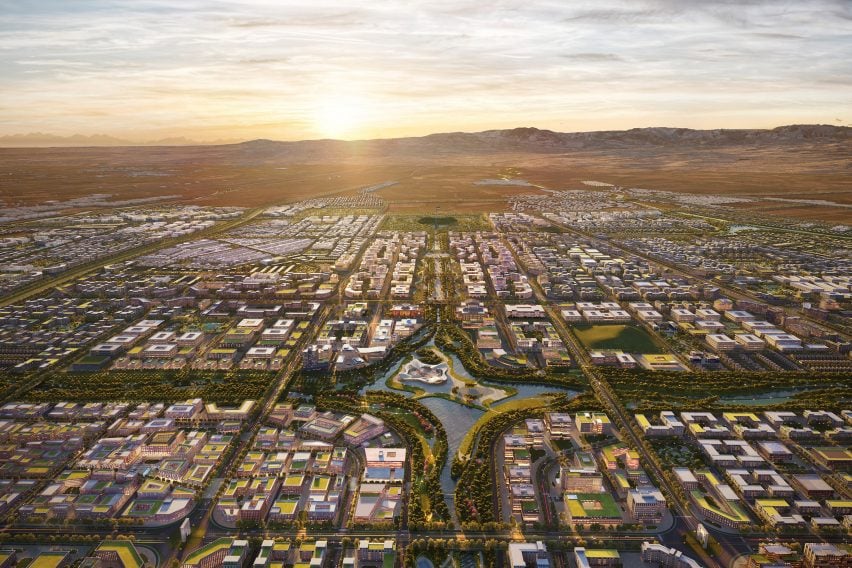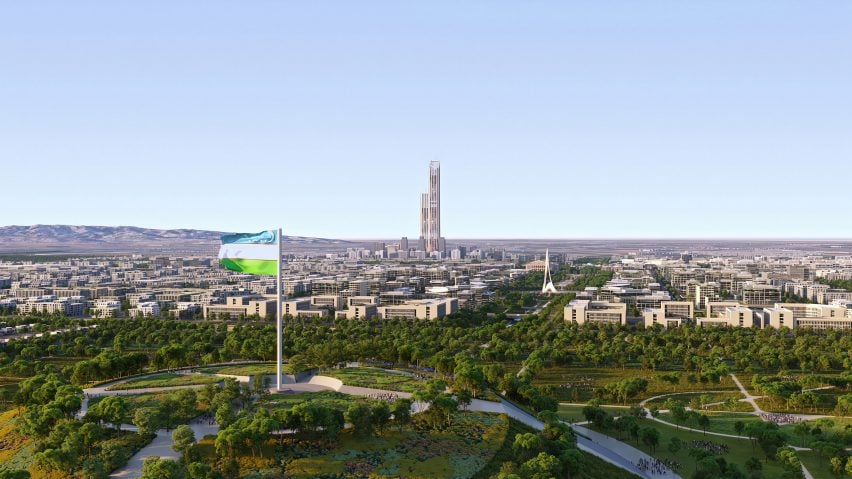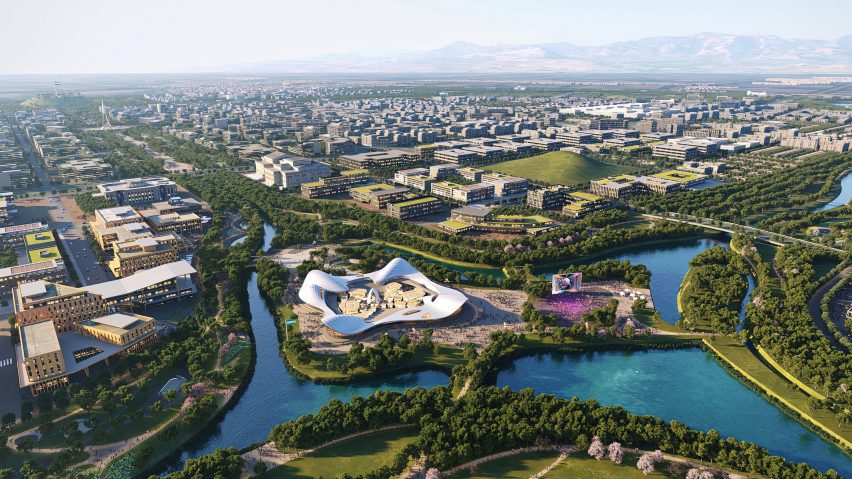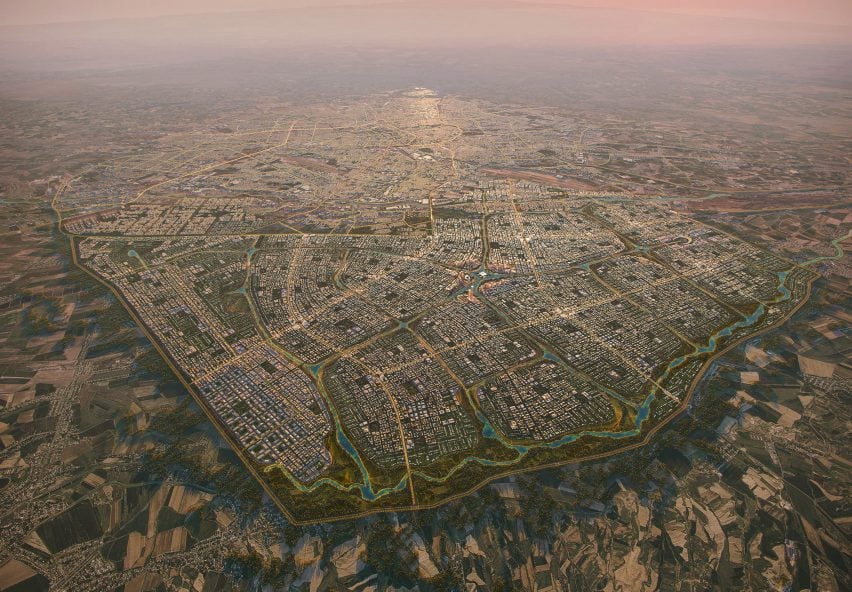Promotion: the government of Uzbekistan has given planning approval for London firm Cross Works’ masterplan to expand Tashkent, adding another 25,000 hectares equivalent to a “twin city”.
New Tashkent (or ‘Yangi Toshkent’ in Uzbek) will occupy a site between the Chirchiq and Karasu rivers, where groundworks are already underway, effectively growing Central Asia’s largest capital eastwards.
It will almost double the size of the capital eastwards, housing an additional two and a half million people, adding to the existing three million population.

Cross Works was chosen as the lead consultant on the project following an international competition and is advising the government on creating “a future-proofed masterplan that will provide a foundation and a framework for the city’s rapid urban growth for decades to come”, according to the studio.
Its role encompasses masterplanning, overseeing and coordinating the outputs of a design consortium made up of over a dozen international firms (consisting of engineers, landscape architects, cost consultants, economists, and others – including Buro Happold).
The studio has also created a digital twin of the new “twin city”, which involves creating a digital clone of the project which will evolve in tandem with its real world counterpart.

“The masterplan is not intended to be static,” said Cross Works founder and New Tashkent design lead Hakan Agca.
“Instead, our intention for the project, is that it lives on the digital twin, and is able to evolve and flex, almost in real time; that’s been our mission statement from the start.”
The digital twin includes 2D and 3D urban analyses, interactive design guidelines, geolocated renders, immersive VR / walk-through environments and a timeline of the project, through which various evolutions of the project can be called back and viewed, alongside detailed engineering and economic forecasting.

A streamlined version of the digital twin was also made accessible to the public, “allowing for unparalleled accessibility to the masterplan by stakeholders, investors and future residents”, according to Agca.
“A true evolution in city design and planning, the project revolutionises how visionary masterplans are conveyed to the public, setting a new benchmark for city scale stakeholder engagement,” Cross Works said.
“Of course it is up to the directorate of New Tashkent (the government body managing the delivery of the new city), as to when the information will be released, and to what extent,” Cross Works said.
“Our role was to design the city and build the digital infrastructure for the management of those designs, which we’ve now completed.”
Alongside the masterplan, the studio has also developed overarching urban design guidelines for the area to guide the future development of its buildings and infrastructure.
Called the Tashkent Code, this is intended to update the existing Soviet-era planning regulations, which still guide some of the building codes in Central Asia.
“The Tashkent Code is prescriptive, not restrictive,” Agca said. “It is intended to guide the form of the city in a certain direction, in line with the government’s wishes, all of which was established during our engagement with the directorate.”

“There’s a desire to continue defining and evolving a clear and unique national identity,” he said. “It has been underway since the nation state’s independence in 1991. It’s an exciting time for the city and the country at large.”
“This is done with certain overarching principles, not to restrict creativity in any way, or to propose a homogenous approach to design across the city,” he added.
Cross Works is soon to complete the architectural guidelines for New Tashkent’s District 1 and is also working on individual plots in the masterplan alongside other international architecture firms.
These designs will be published over the coming months. This includes Zaha Hadid Architects, which has already unveiled its design for an Uzbek cultural centre with a weaving brick facade.
The Cross Works masterplan, and other initiatives across Uzbekistan will be presented at conferences throughout the year, including MIPIM in Cannes in March 2025.

“This is a new city of many tens of thousands of plots, that will need to be designed and built collaboratively,” Agca said.
“There will be enough plots for many hundreds of architects to design in the future, in line with the masterplan framework and codes that have been set out by the design team and the Directorate of New Tashkent. As time passes, the framework and codes will evolve.”
To see New Tashkent’s digital twin, visit yangitoshkent.com
Partnership content
This article was written by Dezeen for Cross Works as part of a partnership. Find out more about Dezeen partnership content here.

